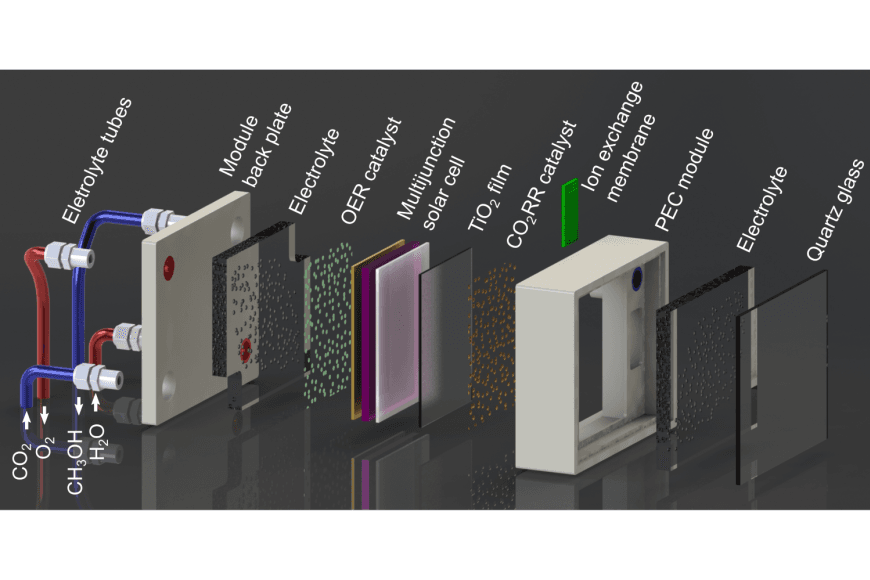
Liquid Sun is the answer to the sustainable energy solutions of the future by turning CO2 and H2O into liquid hydrocarbons such as formic acid and methanol just with the energy coming from the Sun. Liquid Sun operates as a solar fuel cell based on artificial photosynthesis, where the solar energy is converted into the chemical bond energy of the hydrocarbons under photoelectrochemical (PEC) conditions. This enables efficient and economically viable storage and transport of solar energy on demand as well as helping to maintain the atmospheric CO2 levels within the anthropogenic carbon cycle, which mitigates the ongoing climate change.
Like in an ordinary solar cell, where the electricity produced is proportional to the solar illumination, the formation rate of hydrocarbons is also proportional to the light intensity. Therefore, Liquid Sun is designed to operate with concentrated photovoltaic (CPV) power plants, where lenses and mirrors are used to focus sunlight onto multijunction solar cells with light intensity exceeding 100 suns.
Our innovative approach is based on utilizing two state-of-the-art multijunction III–V semiconductor CPV tested solar cell materials acting as a photoelectrodes. The multijunction III–V solar cells are set to provide over 50% solar-to-power efficiency with current densities over 1000 mA/cm2 under a light intensity equivalent to 100 suns. A corrosion protection and charge transfer optimized thin film of TiO2 with a thickness of 30 nm will be atomic layer deposited (ALD) on both III–V solar cell materials to ensure durability and functionality.
Liquid Sun project brings together an exceptional team of proven experts in the fields of high-efficiency solar cells and PEC functional ALD thin films in addition to world-class experience and competence in entrepreneurship and business development.
Liquid Sun project strives to meet the following objectives: (i) Design and validation of the proof-of-concept solar fuel cell operation under extreme solar radiation conditions realized in concentrated solar photovoltaic power plants and (ii) Develop and secure the IPR status by a well-founded business strategy for commercialization of Liquid Sun.
Funding source
Business Finland
Co-operators
Doranova Oy
Contact persons
Mika Valden
Professor, Vice Dean for Education Mika Valden
Mika Valden